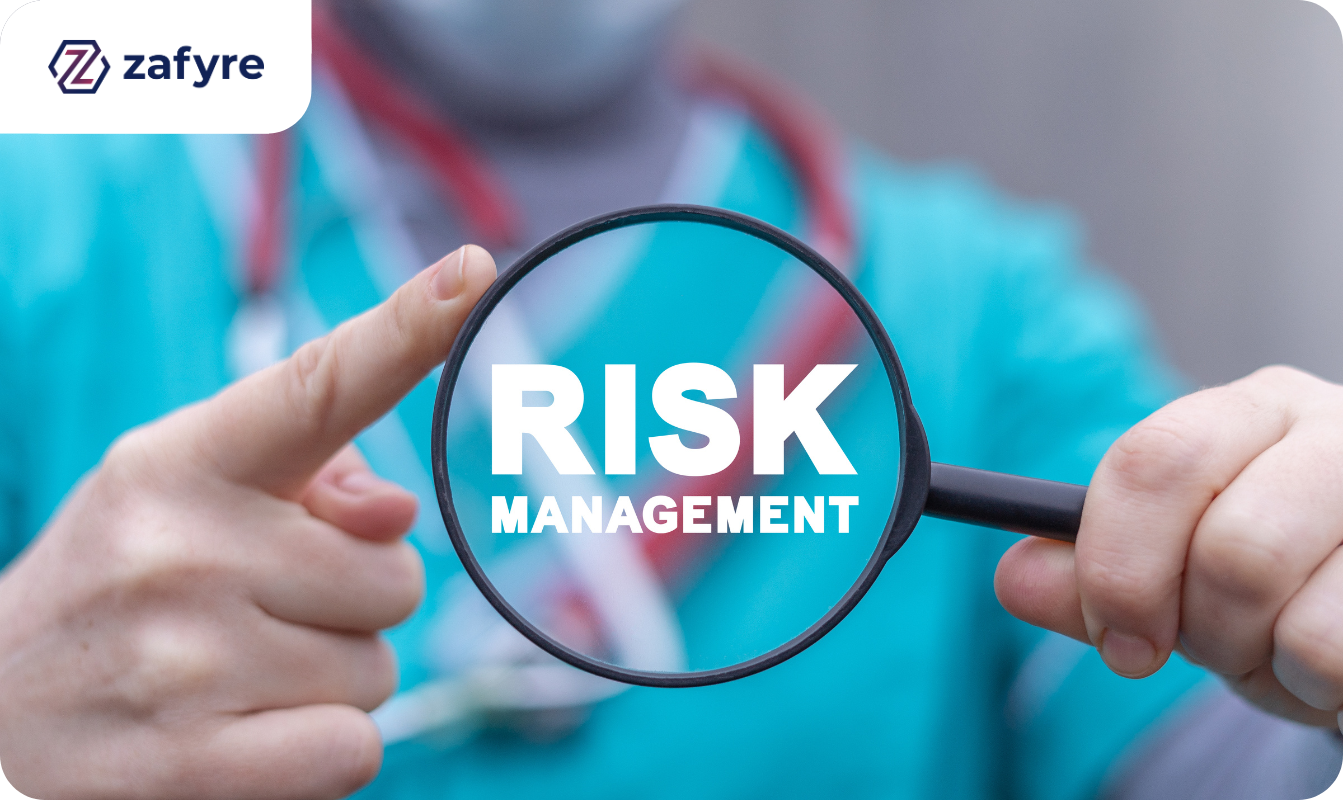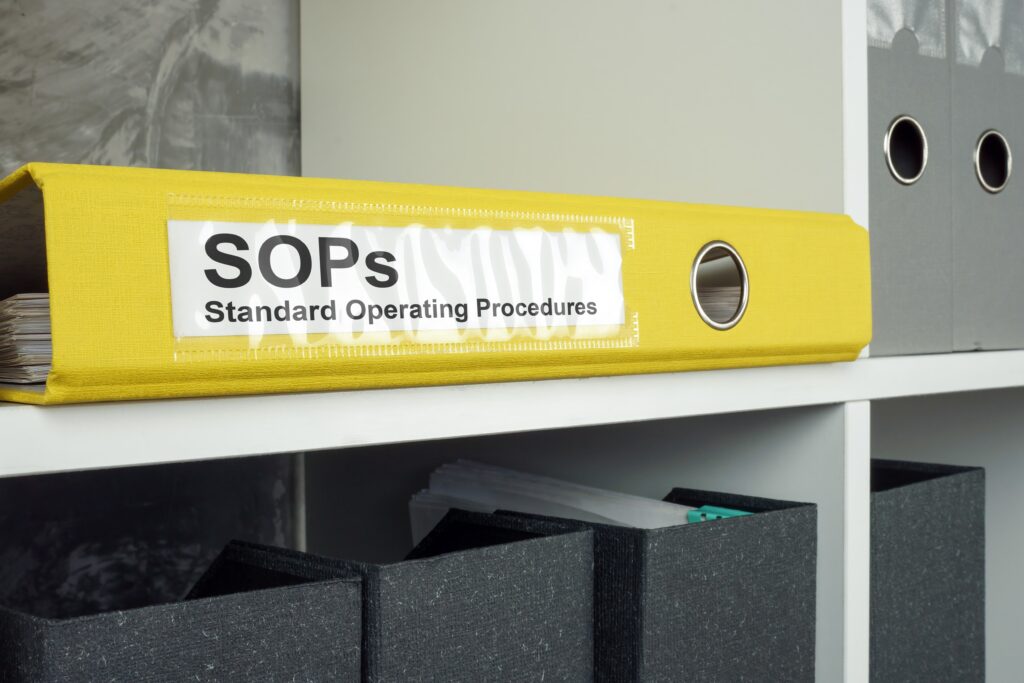Enhancing Risk Management in Indonesian Healthcare

Risk management in Indonesian healthcare faces unique challenges, from hospital-acquired infections (HAIs) and clinical safety incidents to operational inefficiencies and cybersecurity risks. HAIs contribute to a 15% increase in patient mortality rates, making patient safety a critical concern.
With the increasing demand for quality healthcare, regulatory compliance, and the need to mitigate risks, hospitals must implement comprehensive risk management frameworks. However, relying solely on standard risk management practices is not enough. Additional strategies are required to strengthen resilience and adaptability in healthcare settings.
This article explores key risk areas, successful case studies, and recommendations to enhance patient safety and operational efficiency in Indonesian hospitals.
Key Risk Areas in Indonesian Healthcare
1. Hospital-Acquired Infections (HAI)
Hospital-acquired infections remain a significant challenge in Indonesian healthcare. To combat HAIs, hospitals are implementing strict hygiene protocols, supported by infection control committees dedicated to reducing risks. Advanced technologies, such as antimicrobial stewardship programs, are also helping to manage antibiotic resistance and improve patient outcomes (Supriadi et al., 2023). By addressing these issues, healthcare providers in Indonesia aim to enhance overall safety and patient care quality.
2. Safety Incidents in Clinical Settings
Near-miss events and medical errors, continue to pose risks in clinical settings across Indonesia. Reporting systems have been established to document and analyze these occurrences, enabling healthcare teams to prevent future incidents (Listiowati et al., 2024). Simulation-based training for healthcare workers plays a vital role in preparing them to manage high-risk scenarios effectively. Additionally, tools like patient safety checklists are being integrated into daily routines to improve safety standards and reduce errors in medical practices (Dhamanti et al., 2019).
3. Mental Health Risks
Mental health is an emerging concern in Indonesian healthcare, especially during the COVID-19 pandemic (Marthoenis et al., 2023). Hospitals and clinics are increasingly focusing on establishing dedicated mental health units to provide timely care for patients in distress. Training healthcare professionals to recognize and respond to signs of mental health issues is also prioritized, ensuring patients receive the support they need (Marastuti et al., 2020). These initiatives aim to reduce stigma and improve access to mental health services nationwide.
4. Nonclinical Risks
According to the ASEAN Youth Organization Research Center (2022), nonclinical risks, particularly in the era of digital transformation, are becoming more prominent in Indonesia’s healthcare sector. Data security breaches pose significant challenges, making it crucial for healthcare providers to adopt robust cybersecurity measures. Operational risks, such as staffing shortages and logistical issues, are also affecting service delivery. Additionally, financial risks tied to hospital revenue cycles are being addressed through improved financial management strategies. Tackling these nonclinical risks is essential for ensuring the sustainability and efficiency of healthcare services.
Risk Management Practices in Indonesian Hospitals: Insights from Studies
Analysis of Factors Affecting Hospital Risk Management in Indonesia (Dihartawan et al., 2024)
This study evaluated risk management implementation in 90 hospitals across 10 provinces.
Key findings include:
– Common risks: HAIs, medication errors, workplace injuries, and hazardous material exposure
– Effective mitigation strategies: Comprehensive Standard Operating Procedures (SOPs) and thorough risk identification analysis
– Outcome: Hospitals with structured SOPs showed significant improvements in risk management practices

Minimizing Work Risks in Indonesia: A Case Study Analysis of Hazard Identification, Risk Assessment, and Risk Control Implementation (Veena Priyanka & Fransisca Tiur Basaria, 2023)
This case study examined the Hazard Identification, Risk Assessment, and Risk Control (HIRARC) approach in high-risk work environments.
Key findings include:
– Common risks: Inconsistent use of personal protective pquipment (PPE) and risks in high-temperature environments
– Effective mitigation strategies: Emphasis on work discipline, PPE compliance, and systematic risk control
– Outcome: Implementation of these strategies led to improved workplace safety and reduced work-related accidents

Recommendations for Enhancing Risk Management in Indonesian Healthcare

Hazard Identification, Risk Assessment, and Risk Control (HIRARC) Approach
- Risk Assessment: Perform thorough risk assessments to identify potential hazards in the healthcare environment.
- Risk Control Measures: Implement appropriate risk control measures to mitigate identified risks.
- Continuous Monitoring: Establish a system for continuous monitoring and evaluation of risk management practices to identify areas for improvement.
Standard Operating Procedures (SOPs)
- Develop Comprehensive SOPs: Create detailed SOPs for various risk-prone activities, including infection control, medication administration, and patient handling.
- Regular Updates: Ensure that SOPs are regularly reviewed and updated to reflect the latest best practices and regulatory requirements.
- Accessible Documentation: Make SOPs easily accessible to all healthcare workers and provide training on their implementation.
Correct Use of Personal Protective Equipment (PPE)
- Proper Training: Provide comprehensive training on the correct use of PPE, including donning and doffing procedures.
- Regular Audits: Conduct regular audits to ensure compliance with PPE usage guidelines.
- PPE Availability: Ensure that adequate PPE supplies are available to all healthcare workers at all times.
Work Discipline
- Strict Adherence to Protocols: Emphasize the importance of following established protocols and procedures to minimize risks.
- Performance Monitoring: Implement regular performance evaluations to ensure healthcare workers maintain high standards of work discipline.
- Accountability Measures: Establish clear accountability measures to address any deviations from standard practices.
Education and Training
- Continuous Learning Programs: Implement regular training sessions for healthcare workers to stay updated on the latest risk management practices and protocols.
- Certification Courses: Encourage healthcare workers to pursue certification courses in risk management and patient safety.
Investing in comprehensive healthcare training is the cornerstone of effective risk management in Indonesian healthcare. By equipping healthcare professionals with the skills to handle hospital-acquired infections (HAIs), safety incidents, mental health challenges, and nonclinical risks, we can build a safer and more efficient healthcare system.
Prioritize training programs that incorporate simulation-based learning, infection control strategies, and digital health technologies to empower your team and improve patient outcomes.
With these strategies, Indonesian healthcare facilities can mitigate risks, protect patients, and improve overall service quality. Now is the time to act!
Take the Next Step in Enhancing Risk Management in Indonesian Healthcare
Explore our tailored healthcare training solutions today and make a lasting impact!
References:
A. Journal Articles
- Dhamanti, I., Leggat, S., Barraclough, S., & Tjahjono, B. (2019). Patient Safety Incident Reporting In Indonesia: An Analysis Using World Health Organization Characteristics For Successful Reporting. Risk Management and Healthcare Policy, Volume 12, 331–338. https://doi.org/10.2147/rmhp.s222262
- Dihartawan, D., Lestari, F., Widanarko, B., & Besral, B. (2024). Analysis of Factors Affecting Hospital Risk Management in Indonesia: The SEM-PLS Approach. Kesmas, 19(2), 135–143. https://doi.org/10.21109/kesmas.v19i2.1106
- Listiowati, E., Arini, M., Nurmansyah, M. I., Rachmawati, E., & Samsudin, A. (2024). Patient Safety Incident Reporting Challenges in Indonesian Private Hospitals. Global Medical & Health Communication (GMHC), 12(1). https://doi.org/10.29313/gmhc.v12i1.12158
- Marastuti, A., Subandi, M. A., Retnowati, S., Marchira, C. R., Yuen, C. M., Good, B. J., & Good, M.-J. D. (2020). Development and Evaluation of a Mental Health Training Program for Community Health Workers in Indonesia. Community Mental Health Journal, 56(7), 1248–1254. https://doi.org/10.1007/s10597-020-00579-7
- Marthoenis, M., Sari, H., Martina, M., Alfiandi, R., Asnurianti, R., Hasniah, H., Safitri, S. D., & Fathiariani, L. (2023). The prevalence of and perception toward mental illness: a cross-sectional study among Indonesian mental health nurses. BMC Psychiatry, 23(1), 1–6. https://doi.org/10.1186/s12888-023-05063-6
- Supriadi, I. R., Haanappel, C. P., Saptawati, L., Widodo, N. H., Sitohang, G., Usman, Y., Anom, I. B., Saraswati, R. D., Heger, M., Doevendans, P. A., Satari, H. I., Voor, A. F., & Severin, J. A. (2023). Infection prevention and control in Indonesian hospitals: identification of strengths, gaps, and challenges. Antimicrobial Resistance and Infection Control, 12(1). https://doi.org/10.1186/s13756-023-01211-5
- Veena Priyanka, & Fransisca Tiur Basaria. (2023). Minimizing Work Risks in Indonesia: A Case Study Analysis of Hazard Identification, Risk Assessment, and Risk Control Implementation. E3S Web of Conferences, 426, 01017–01017. https://doi.org/10.1051/e3sconf/202342601017
B. Other References
- ASEAN Youth Organization Research Center. (2022). Data Protection in Contemporary ASEAN: Analyzing the Healthcare Data Breach in Indonesia. https://ayorecent.com/wp-content/uploads/2023/05/AYO-RECENT-Data-Protection-in-Contemporary-ASEAN-Analyzing-the-Healthcare-Data-Breach-in-Indonesia.pdf
- Compliancy Group. (2023, December 27). Benefits of Risk Management in Healthcare. Compliancy Group. https://compliancy-group.com/benefits-of-risk-management-in-healthcare/
- Yuen, C. (2024, December 12). Healthcare Risk Management Fundamentals for Safer Practices. SNF Metrics. https://snfmetrics.com/healthcare-risk-management-fundamentals/





